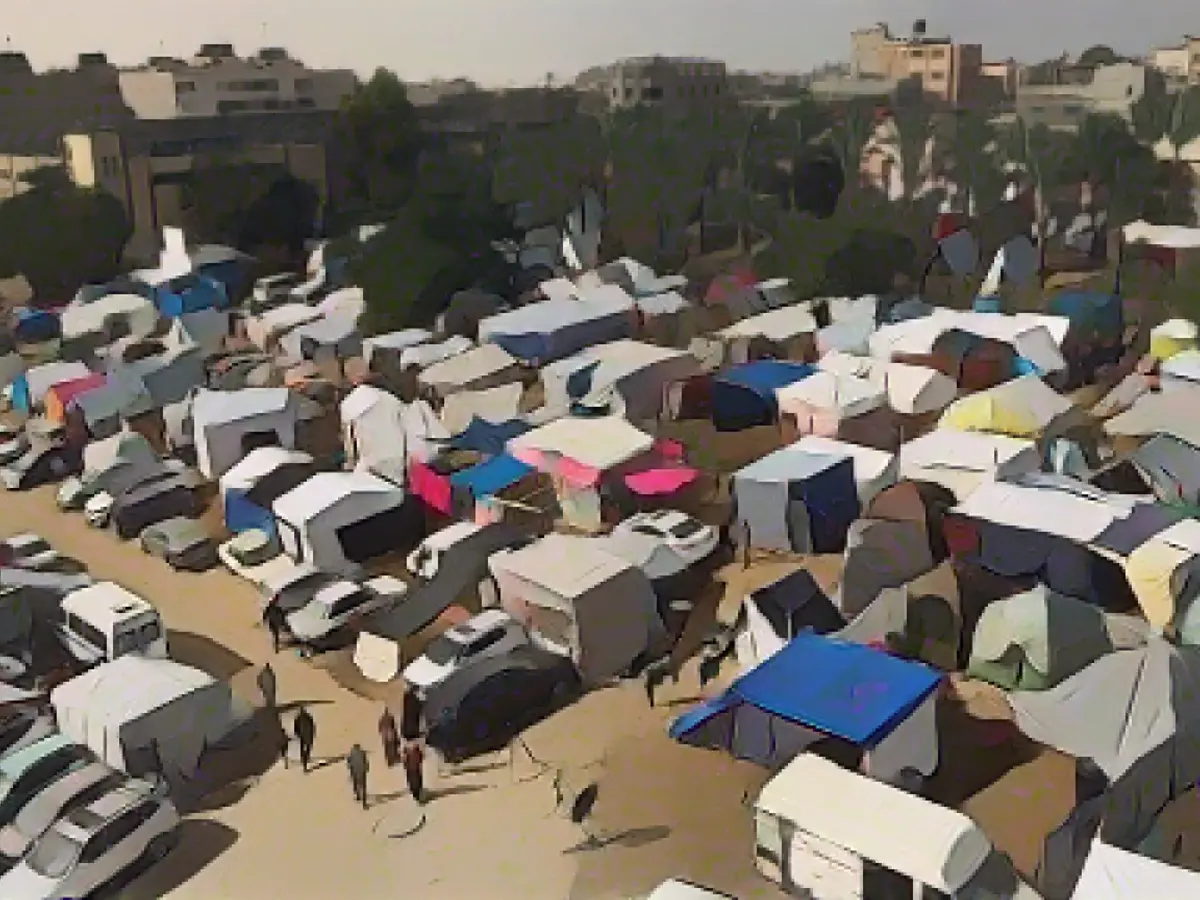Warning: Disease May Be Deadlier Than Airstrikes in Gaza's Troubled Health System
The World Health Organization (WHO) has sounded the alarm, warning that diseases and a weakened healthcare infrastructure in Gaza could potentially kill more people than airstrikes and rocket attacks.
WHO spokesperson Margaret Harris stated on Wednesday, "If we cannot restore this healthcare system and meet the basic needs of life—food, water, medication, and of course fuel, more people will die from diseases than from bombings and the operation of hospitals."
According to Dr. Barry Levy, an extraordinary professor at the Tufts University School of Medicine and author of "From Terror to Hope: Understanding and Preventing the Health Effects of War," most conflicts cause more people to fall ill and die from indirect health effects than from direct damage from bombs, bullets, and other weapons. These indirect effects are primarily caused by the destruction of civilian infrastructure, which provides food, water, shelter, and healthcare services, as well as displacement.
The indirect health effects in Gaza include infectious diarrheal diseases like cholera, mostly due to limited access to clean water, and respiratory infectious diseases like measles, tuberculosis, and COVID-19, partly due to cramped living conditions. Public health services such as vaccinations and measures to control outbreaks, as well as increasing malnutrition, can all contribute to the emergence and severity of infectious diseases.
"During the conflict, diabetes and chronic heart and lung diseases worsen due to limited access to healthcare and essential medications," Levy said. "Maternal and infant mortality rates increase due to limited preventive and medical services. War has far-reaching effects on mental health, including depression, post-traumatic stress disorder, and suicide."
"I agree with the WHO that humanitarian aid must continue," Levy added. "Health and peace are closely linked. The health and security of people cannot be restored until the violence ends and steps are taken to achieve a just and sustainable peace."
Growing Deadly Risks
Rebecca Katz, professor and director of the Georgetown University Center for Global Health Science and Security, said conflicts could potentially lead to more deaths from diseases or other indirect health effects than from trauma-related injuries.
"Infection-related diseases and other health challenges always raise concerns in conflict zones," Katz, who is not affiliated with the WHO, wrote in an email. She added, "Conflicts impede general access to care and medication, so people may have difficulty finding treatment for diseases that could otherwise be managed."
"Regarding noncommunicable diseases such as HIV, diabetes, and cancer, conflict often disrupts maintenance treatments and follow-up care," Katz explained. "War-related stress and trauma can also impact mental health, leading to increased rates of mental illnesses, substance abuse, and suicide."
"If conflicts impede access to clean water, waterborne diseases can present a challenge," she added. "If it is difficult to maintain clean sanitation facilities, individuals are at risk for various other diseases linked to these challenges."
Since early November, WHO officials have warned that in Gaza, due to disruptions in healthcare services and water and sanitation infrastructure, there is an increasing risk of disease outbreaks.
WHO Director-General Dr. Tedros Adhanom Ghebreyesus stated on Wednesday in a post on X (formerly Twitter), "Given living conditions and the lack of medical care, more people could die from diseases than from the explosion." Tedros Adhanom Ghebreyesus wrote.
He added, "More than 1.3 million people in Gaza are living in overcrowded conditions and lack basic needs such as food, water, sanitation facilities, basic hygiene, waste management, and access to medication, which leads to unusual high morbidity rates."
On Friday, the United Nations Relief and Works Agency for Palestine Refugees (UNRWA) reported a hepatitis A outbreak in one of its refugee camps, as the UN agency indicated that overcrowding and poor sanitation in the Near East's southern UNRWA camps have resulted in an "increase in some infectious diseases and health problems."
According to a Tuesday post from the WHO, there were at least 111,000 cases of acute respiratory infections, 12,000 cases of scabies, 11,000 cases of chickenpox, 75,000 cases of diarrhea, around half of which were in children under 5, 24,000 cases of skin rashes, and 2,500 cases of measles, among other health issues.
"Compromises in key infrastructure for human health—hospitals, sanitation facilities, and clean water—create all the necessary conditions for the outbreak of deadly diseases," Ubydul Haque, Global Health Associate at the Rutgers Global Health Institute, stated in an email. "Since hospitals are non-functional and outbreaks go undetected, the risk of disease spreading rapidly among the displaced is high. In such a case, the risk of dying from diseases is much higher than the risk of dying from bombings."
In addition to physical health risks, the constant inhalation of toxic substances in the environment, such as smoke from open fire pits, sand, dust, fine particulate matter, heart-lung diseases, and strokes, can also have negative effects on the respiratory system and can even lead to cancer in the long term.
Pregnant women also face various health risks, including premature labor, pre-eclampsia, stillbirths, preterm births, complications in childbirth, and other complications in newborns.








